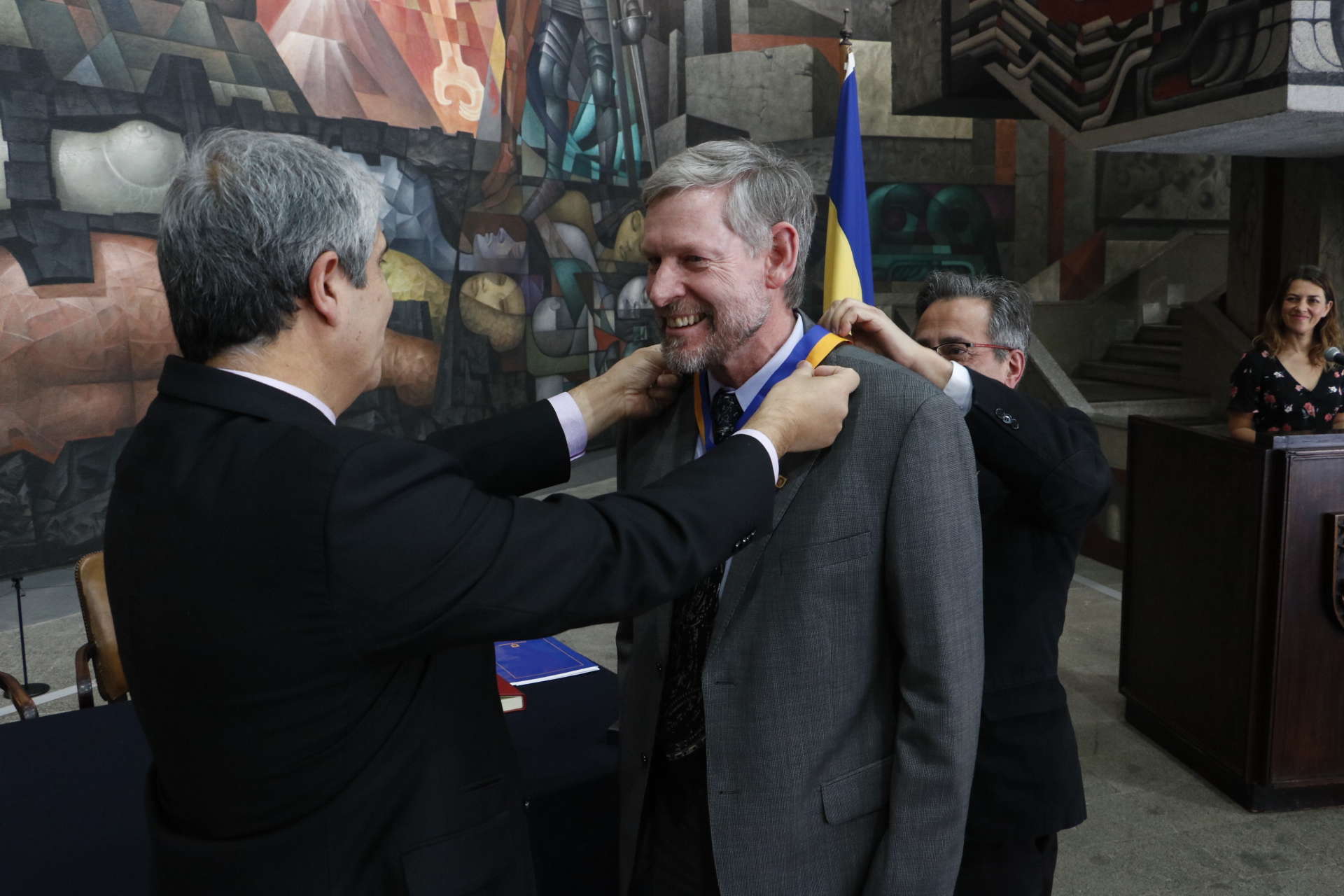
Concepción, 3 October 2019
Dr. Douglas Geisler named Emeritus Professor of the University of Concepcion
Dr. Douglas Geisler, scientist and academic, was awarded the title of Emeritus Professor by the Academic Council of the University of Concepcion - an honorary title granted to distinguished academics at the university.
The ceremony was held on 2 October at 16:00 in the Salón del Mural of the University of Concepcion. Attending the ceremony were the Rector, Dr. Carlos Saavedra; the Dean of the Faculty of Physical and Mathematical Sciences, Dr. Roberto Riquelme; the Director of the Department of Astronomy, Dr. Ricardo Demarco; as well as academics and colleagues, and friends and family of Dr. Geisler.
"It's a tremendous honour, the best of my life, it is one of the most prestigious recognitions that a professor can receive and I'm extremely proud of it", commented Dr. Geisler, who has worked at the university for more than 20 years as an academic and researcher. Dr. Geisler is also one of the founding members who helped shape the astronomy group at the university. His research focuses on optical and infrared astronomy which he uses to analyse the ages and composition of stellar populations in nearby galaxies.
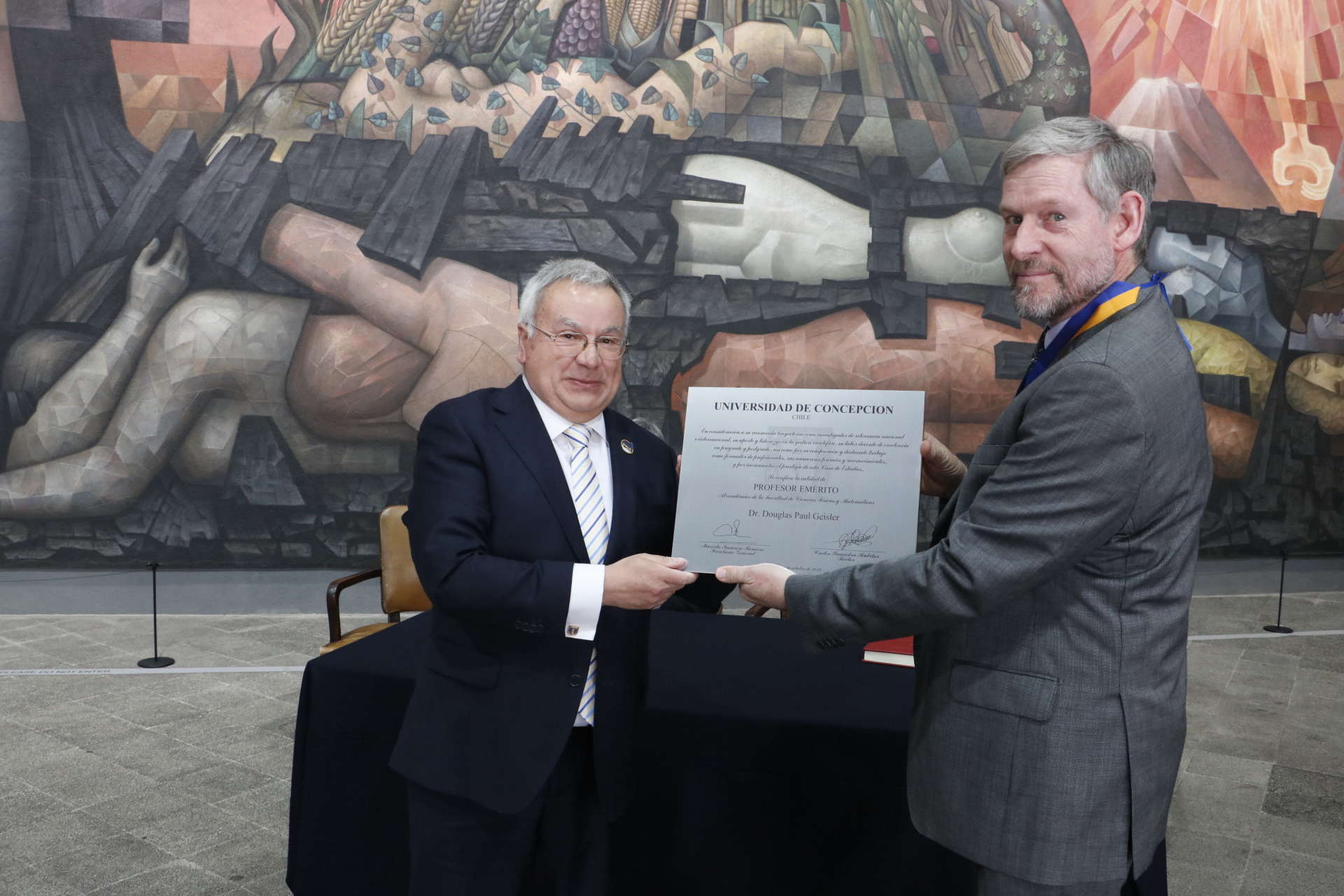
"The university has always been open to the development of our science from the days of the Rector Sergio Lavanchy and Vice-Rector Ernesto Figueroa to the present with the current Rector Carlos Saavedra. The authorities have always been willing to support our growth, and we have reciprocated with excellent work, carrying out high-quality research, winning important national and international projects, and hosting world-class scientific meetings. It is a tremendous privilege to work at this great university, and also in the most important country in terms of astronomical observations".
Among his research, it is highlight his work using the Gemini South Telescope, which resulted in capturing the first-ever image of the stellar cluster Liller 1, located at the centre of our galaxy. This cluster is inherently difficult to observe due to its huge distance and the stellar dust in the region. However, together with his group, it was possible to obtain an ultra-sharp, high-quality image, unveiling a vast city of stars and one of the few places in the Universe believed to host stellar collisions.
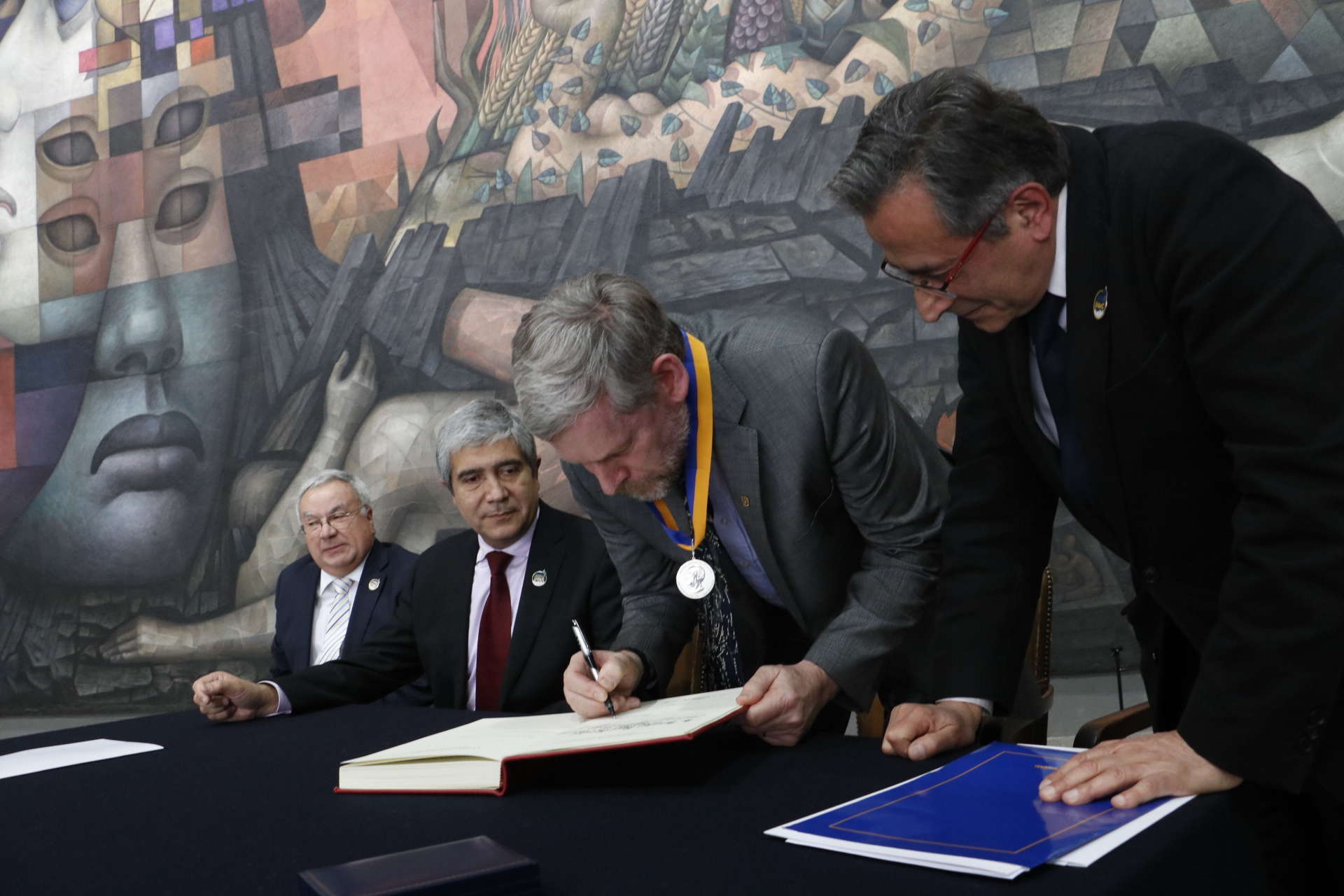
Dr. Geisler obtained his PhD in Astronomy at the University of Washington, USA, in 1983. Anecdotally, he recalls being part of the PhD Thesis Committee of Neil deGrasse Tyson (the astrophysicist known for conducting the sequel of "Cosmos") at Columbia University. "This happened in the 90s more or less, when I was working at the Inter-American Observatory in Cerro Tololo. Part of his thesis used a technique I developed, which led his advisor to invite me to join the committee. I met Neil in person for the first time in a scientific meeting held in La Serena in 1990, where he showed some of his research findings. Years later, at a social event, we shared a dinner, and I noticed his unique gift for teaching and entertaining at the same time", he added.
In 1999, Dr. Geisler joined the University of Concepcion, an institution where he has trained new astronomers and conducted cutting-edge research. "At the university I have had the support of many people: colleagues such as Wolfgang Gieren; all the professors and staff of the Department of Astronomy: the Dean of our faculty Roberto Riquelme (who suggested me to apply for this honour and has struggle for this many years); people such as Patricia Muñoz, María Teresa Sandoval, Marcela Sanhueza, Marllory Fuentes, Jeanette Espinoza, who have transformed our faculty and department into a welcoming and efficient place to work; and finally, my wife, María Eugenia Barraza, who has always accompanied me through life, supporting me in everything", concluded Dr. Geisler.

|
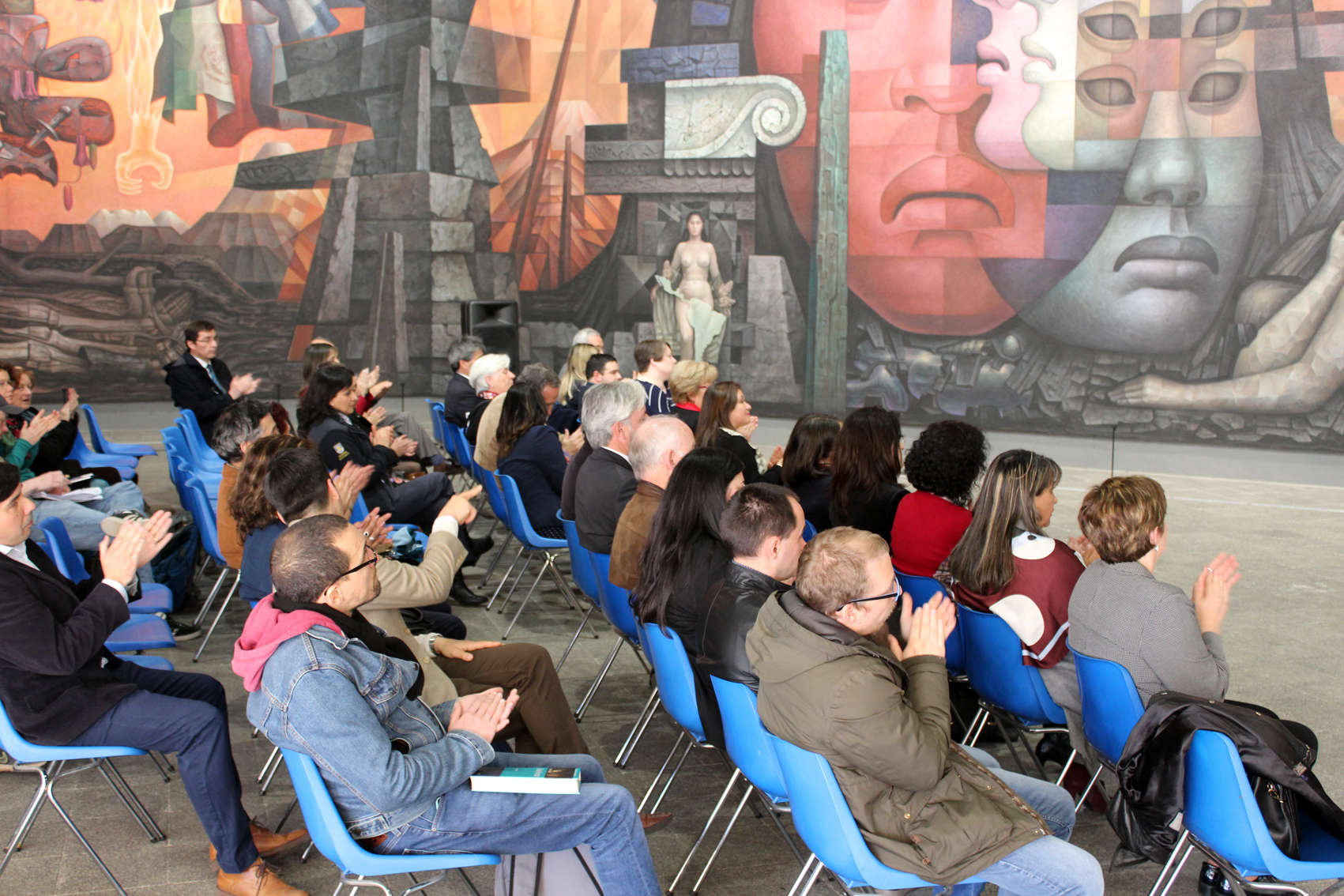
|
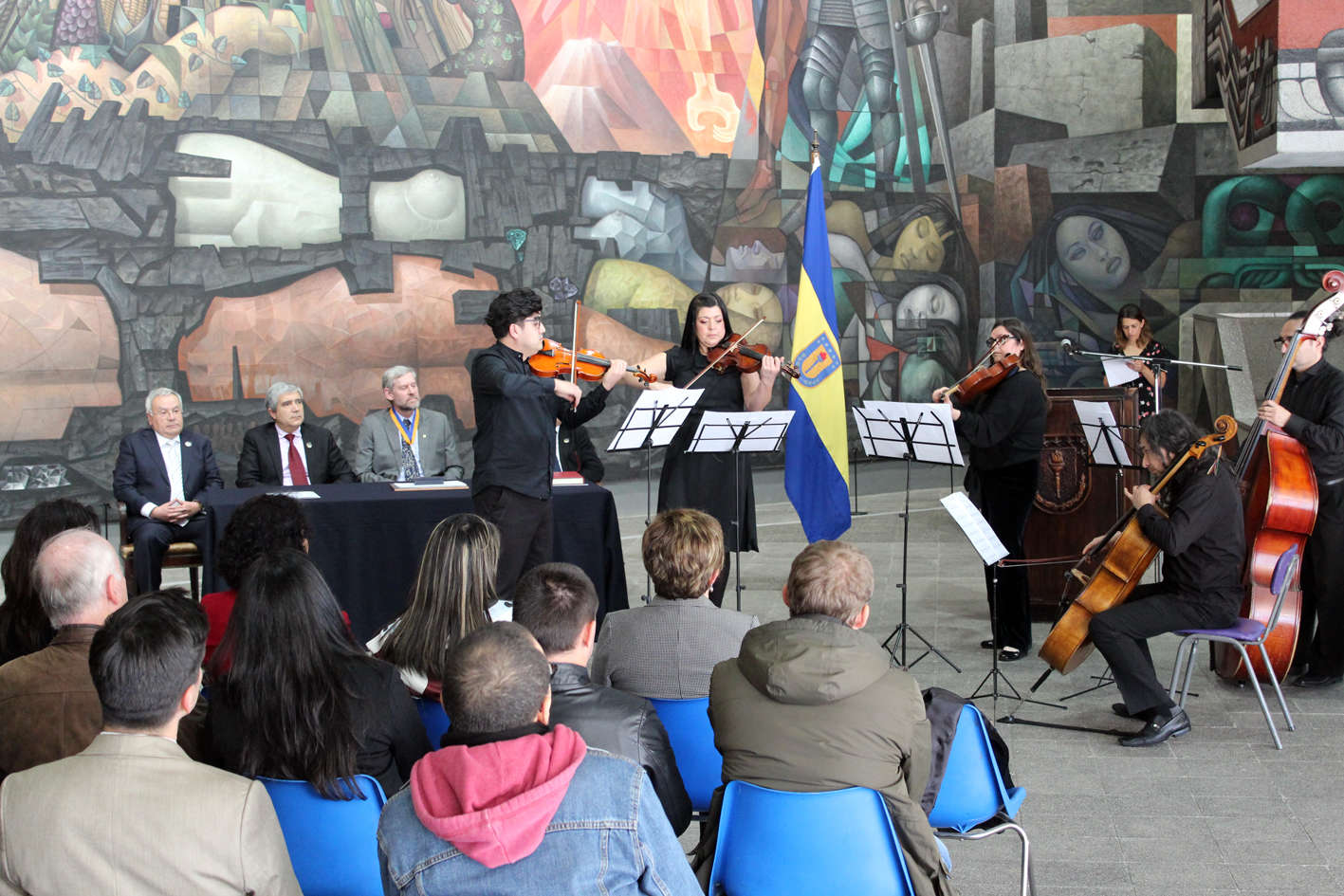
|
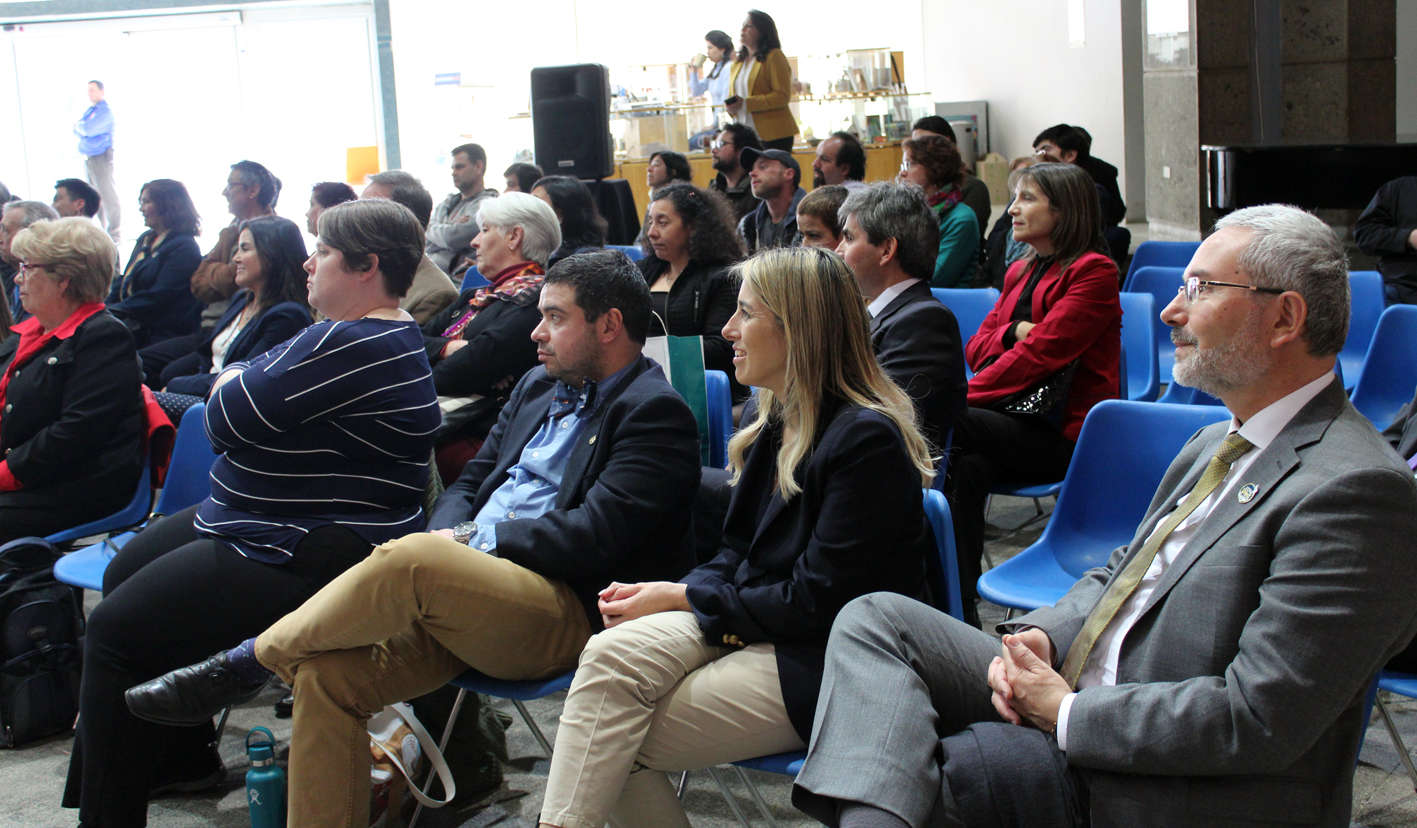
|
Department of Astronomy Communications





